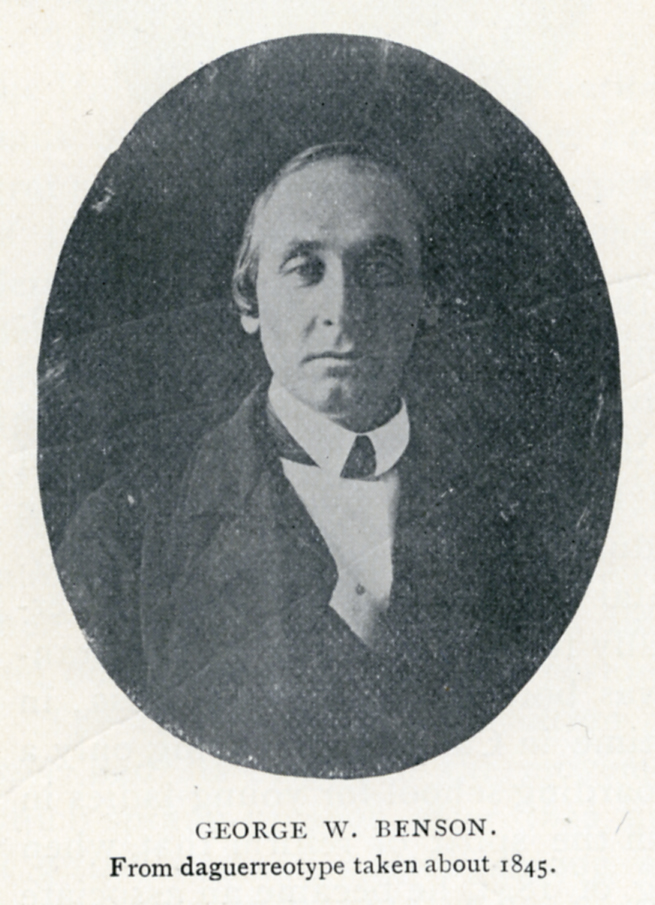Northampton Association
E.D. Hudson was one of the seven original founders who established the Northampton Association for Education and Industry on April 8, 1842 in present day Florence, MA. The Northampton Association was one of many utopian communities established throughout the 1840s that aspired to destroy inequality and reform society. Despite these noble intentions, Hudson never fully embraced the community, and was the only original founder to refuse formal power as an officeholder. Hudson only reluctantly joined the community because of his relationships with the Association's other founders George Benson, Judd Hall, and Samuel Hill.1 Unlike the other founders, Hudson did not view the community itself as an act of social reform, but instead as a means to delivering social reform. Many of the members perceived the community as a refuge from society's moral decay, but Hudson envisioned it as a base for launching efforts to reform society's rampant depravity. The community functioned as a safe place for Hudson's family to stay while he traveled throughout the country crusading against society's various ills.2
Hudson strongly believed the community should share his zeal for lecturing, and send agents into the field to promote the association's various causes. On September 2, 1842, Hudson wrote in a letter to Martha "I'm satisfied that the Northampton Assc is not on the right ground yet - that the principles of benevolence ostensible, not real, does not constitute the motive power of the Assc. The property system I deem wrong - radically so - and the Assc ought to have one or two agents in the field that can act independently, preach godliness and its collaterals, non-resistance, Anti-slavery, temperance, yea "Anti devil;" - be lights: not false ones wrecking those who are in any degree governed by our light, for the world is full of such & their influence is dreadful indeed, but true lights shining forth their principles that God be glorified & mankind happy."3 Hudson interpreted the Association's limited proselytizing as the community members valuing their own interests over those of the world.
Hudson also strongly resented the community's system of wage labor and property holding. Hudson did not share the same economic views as many of his abolitionist peers or fellow community members. Most of the community's founders wanted to use the Association to improve capitalism, but Hudson perceived the noncompetitive community as an inherent critique of private profit.4 Hudson viewed the community as a large family, and he believed families to be free from market forces: a view premised largely on paternalist assumptions. Hudson commented in his journal "A community cannot be formed which will be profitable unless the family relation can be recognized and the same feeling of property disinterestness obtain among its members...I feel that my freedom has been abridged by the short connection I have sustained already with this community."5 Hudson felt the community's wage system compromised his individual freedoms, and he and Martha withdrew from the Association in September, 1843, only a year and a half after its founding. Hudson and his wife settled on a farm west of Springfield while their son Robert Fowler Hudson decided not to join them, and instead applied for his own membership within the association.6
Citations
Images
The History of Florence, Massachusetts. Including a Complete Account of the Northampton Association of Education and Industry edited by Charles A. Sheffeld (Florence, MA: published by the editor, 1895) George Benson pg. 68 Samuel Hill pg. 207Additional Links
Historic Northampton


